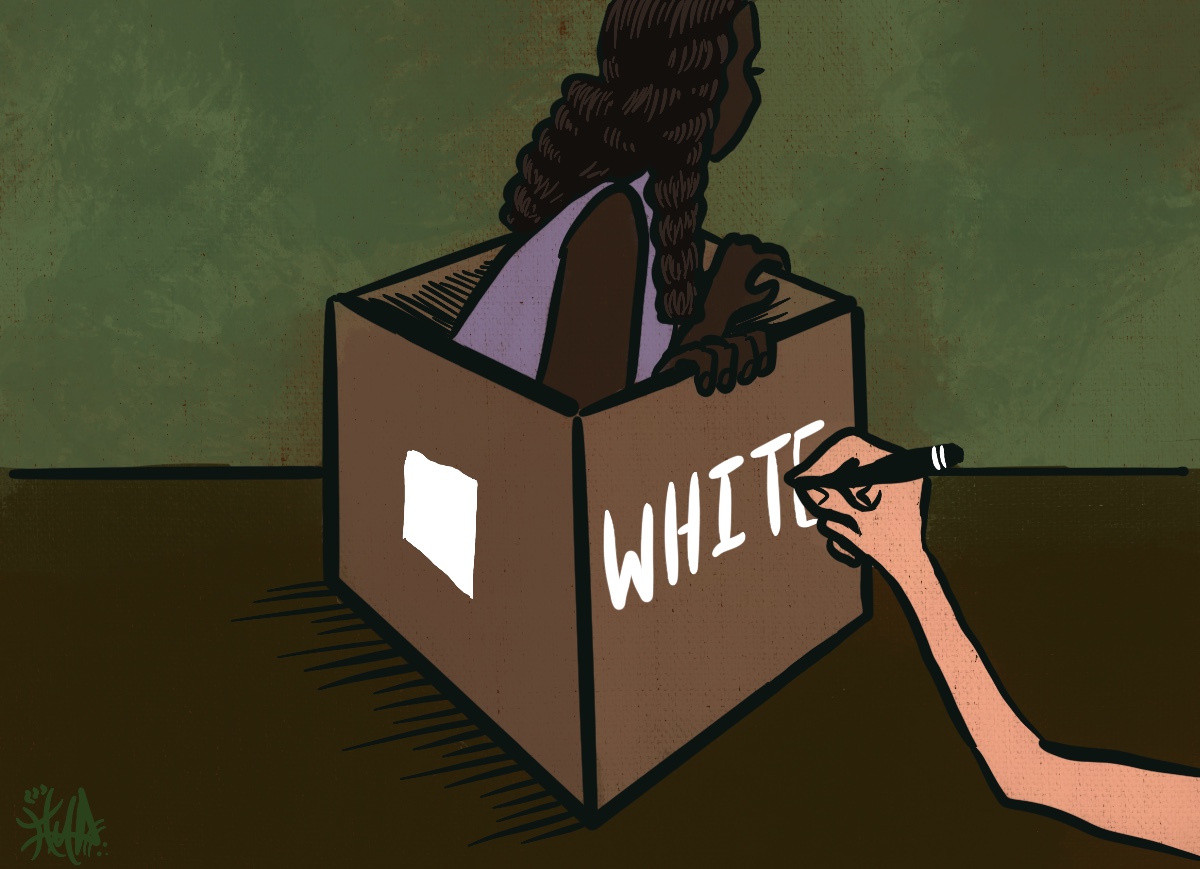Students of Color discuss microaggressions on campus: whitewashing
My name is Tushar Asthana, a sophomore data science student at UVM. I am originally from the subcontinent of India and I’m a first generation immigrant. I’ve lived in Vermont for 13 years, which allows me to have a unique perspective on the issues that stem from racism. It also lets me serve as a spokesperson. I can relate aspects of my life to other Black, Indigenous, People of Color that have similar experiences to mine. This column aims to amplify their voices on UVM’s campus.
October 7, 2021
A recurring microaggression I have faced is being called “whitewashed.”
Mocking me by calling me a byproduct of a white environment due to the circumstances that I am forced to adapt to because of white mishaps, is a class in hypocrisy.
The definition of the word “whitewashed” is: “to portray (the past) in a way that increases the prominence, relevance, or impact of white people and minimizes or misrepresents that of nonwhite people,” according to Merriam Webster Dictionary.
In complex intersections between race and identity, it’s often easier to default to established definitions. In times of crisis, they can even be a source of comfort, but for many BIPOC, the definition has only surface level meaning.
A cold, unfeeling sentence does not reflect the historic pain and suffering it causes.
Calling someone “whitewashed” minimizes their background through use of a culture they exist in but lack membership of. It’s extremely offensive and comes from a lack of education and self reflection.
The education of Americans focuses on the pro-American world, and the history books often neglect tragedy. Patriotism, when misplaced, is often a mockery of truth.
With neglect comes the inability to reflect on when false narratives and wrong motives are being pushed. The first step towards change is to recognize negative missteps when they happen.
A sophomore at UVM, who will be referred to as “Sarah” for the sake of anonymity, identifies as Ethiopian/Eritrean American and said numerous people on the internet, friends, and even family have called her “whitewashed.”
“People form so many assumptions that I cannot be the person I am based on things that are stereotypical of my race,” Sarah said. “I feel forced into a box, and it really bothers me.”
A first-year student who will be referred to as “Tim” identifies as an American-born Indian. He has also been labeled as “whitewashed” and points out that his surroundings do not change his race, he said.
“Just because I’ve grown up surrounded by white people does not mean I am myself white or have ‘white’ tendencies,” Tim said. “My external factors do not change the fact that I am intrinsically brown.”
Sarah and Tim both grew up in Vermont, and both accepted that growing up here had significant impacts on their racial identities.
“For the most part, the majority of people in my community do not identify me as whitewashed, and therefore I have built relationships with them,” Tim said. “However, those who have called me whitewashed in the past are, for the most part, not an integral part of my life.”
The term “whitewashed” is almost always used with a negative connotation. My definition has turned into how someone is minimally themselves, and more stereotypically white.
Regardless of race, the term “whitewashed” makes people doubt themselves, something my interviewees and I can personally attest to.
Sarah said she would be called “whitewashed” almost always after she stated an opinion that could be considered “white.” She said it’s offensive for anyone to try to dictate how someone should act or what they should like based off of racial profiling.
“I’m done educating people,” she said. “I feel like it’s basic human decency to understand that it’s not okay to say these things.”
For Sarah, there is a constant struggle to find a community she relates to.
“It’s less being in the middle of black and white, but more being in the middle of just not being able to find people with the same experience as me,” she said.
The larger issue here is the prominence of microaggressions. I believe white people feel targeted in the conversations associated with race because they don’t seem to understand that the inherent microaggressions have been bred into them through countless generations.
There is a glaring gap in the education and exposure of some of the Vermont community and beyond. America’s education system is faulty. Telling a side of the story that only puts America in a good light does not allow for accountability.
Reducing someone to a singular opinion that is stereotypical of someone not in their racial community is never okay.
That extends beyond just BIPOC communities.
Understanding that every single person is a product of their existing environment is extremely important. Not every black person will fit the stereotype, and not every Muslim will be exactly alike just because they’re Muslim.
As much as racism might be a part of one’s life, it’s a simple matter of self-reflection to recognize where these things crop up. Understanding what is okay to say and what isn’t, what will hurt and what will not is essential. Self-reflection isn’t a chore, it’s respect.
People are taught not to ask a woman her age because it’s considered disrespectful. Equivalently, one should never say things like, “How are you so white but you’re black?” or “You’re whitewashed.” As my Ethiopian friend said, it’s basic human decency.
